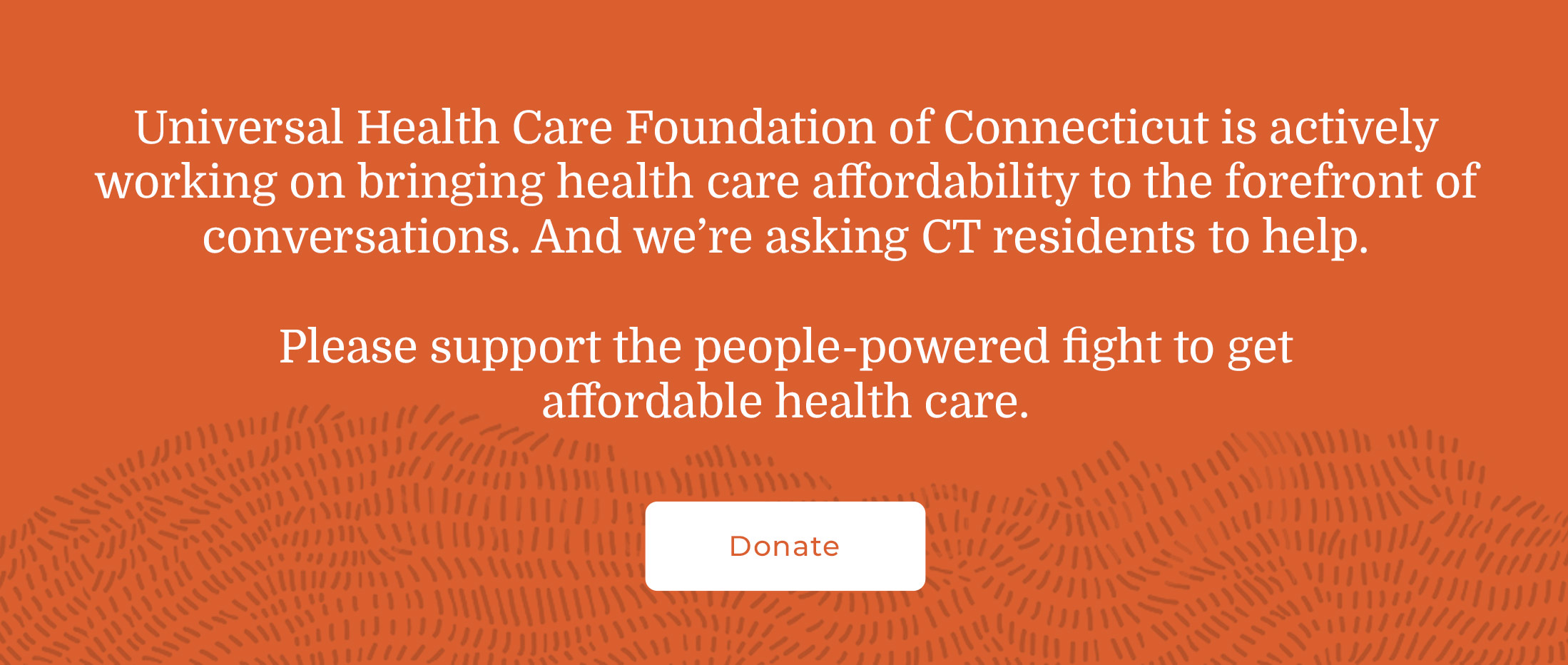Getting to Affordable Health Care: A New Tool
At Universal, we fight for affordable, quality health care for everybody.
We believe that affordability should be a key factor when insurers set their premiums - and when hospitals and pharmaceutical companies decide what prices they will charge.
Affordability to people like you and me is not top of mind for the Big 3 health care industries.
Health care, which should be a basic right, is supplied by profit-driven corporations and health systems and affordability is just not a priority.
New Tool Measures Affordability for People
To change that dynamic, Universal partnered with Connecticut Health Foundation to fund the creation of the Connecticut Healthcare Affordability Index (CHAI).
The goal: To clearly measure and define what affordability is for different types of households across the state, so policymakers could aim to deliver it.
The CHAI was rolled out last year by the two state agencies that participated in the project, the Office of Health Strategy and the Office of the State Comptroller. Now, Universal and Connecticut Health Foundation have worked together to produce an explainer that highlights CHAI’s findings - The Connecticut Healthcare Affordability Index: What it is and How it Works.
Looking at a family’s overall living expenses and income, the CHAI established a health care affordability target. It found that family health care expenses should not exceed a range of 7-11% of income. If health care expenses are above that, then a family is considered to have unaffordable health care.
The CHAI found that 21% of families in Connecticut cannot afford their health care.
Who is facing unaffordable health care the most?
- People who buy their own coverage in the individual insurance market
- People with chronic or serious health problems (those who most need health insurance to protect them!)
- Older people (as people age, their health needs and expenses increase)
Policymakers Must Use CHAI to Protect People
How do we get hospitals to care more about lowering their prices and less about building their empires? What can we do about out-of-control prescription drug costs?
After all, health care cannot help people if people cannot afford to buy it.
For years, Universal has advocated with policymakers to change the rules so that affordability is considered when decisions are made about insurance rates and more. Their reply has been, “How do we know what is affordable?” Now, the CHAI supplies an answer to that question.
We need to put pressure on policymakers to hold the Big 3 health care industries accountable for affordability.
For example, the Department of Insurance reviews health insurance premium requests. By law, the Department does not consider affordability as it decides how much premiums will increase next year in the individual and small group markets. For years, a bill has been introduced to require the department to do that. This year the bill was Senate Bill 356: An Act Requiring the Insurance Commissioner to Consider Affordability as a Factor in Reviewing Individual and Group Health Insurance Policy Premium Rate Filings. And this year, as in other years, that bill died.
Universal testified in favor of multiple bills this year that aimed to inject affordability into policymaking.
It will take a lot more than testifying to make industry change its ways. People must demand change.
Universal testified in favor of multiple bills this year that aimed to inject affordability into policymaking.
It will take a lot more than testifying to make industry change its ways. People must demand change.
The CHAI gives us much better information about what affordable health care should look like in our state. Let’s get to work and use it for good.
Join us to make health care affordability a reality, please sign up.

